 The major theme of this story by Alma Luz Villanueva is climate change. Set over fifty years into the future, Earth has warmed so much that all birds and marine life are extinct and direct exposure to sunlight or seawater can be deadly. Although protective clothing must be worn when venturing outside during the day, an aging woman takes her grandchildren on monthly excursions to the beach. This time she has prepared a special treat. Spurred on by her own childhood memories, they are going to build their first sand castle. Other themes: memories, family, childhood wonder and imagination, hope. More…
The major theme of this story by Alma Luz Villanueva is climate change. Set over fifty years into the future, Earth has warmed so much that all birds and marine life are extinct and direct exposure to sunlight or seawater can be deadly. Although protective clothing must be worn when venturing outside during the day, an aging woman takes her grandchildren on monthly excursions to the beach. This time she has prepared a special treat. Spurred on by her own childhood memories, they are going to build their first sand castle. Other themes: memories, family, childhood wonder and imagination, hope. More…
Archives
The Diamond as Big as the Ritz
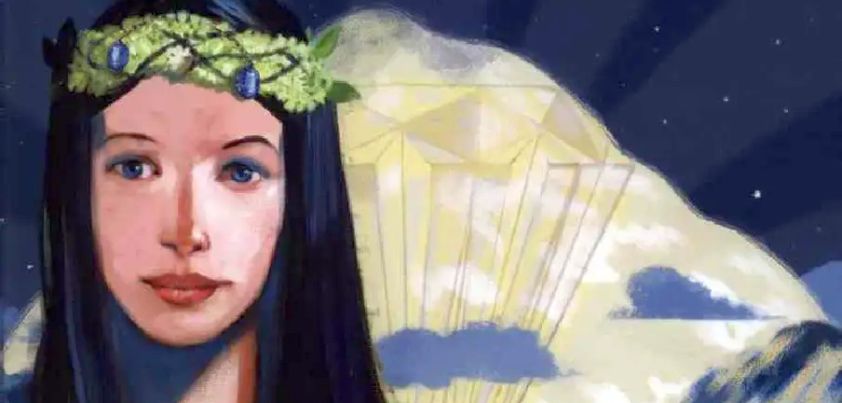 This grim fantasy by F. Scott Fitzgerald satirises America’s mega-rich and, in a broader sense, the “American Dream” in which for some the pursuit of wealth becomes the most important goal in life. A school “friend” invites a young man to holiday at his luxurious family home deep in the Montana Mountains. The narcissistic family’s wealth comes from a secret diamond mine, which is so rich that strangers who enter their hidden valley are never allowed to leave. Themes include the potential corrupting power of great wealth, middle-class preoccupation with wealth, racism, restricted freedom (slavery, imprisonment and/or death), isolationism, escape. More…
This grim fantasy by F. Scott Fitzgerald satirises America’s mega-rich and, in a broader sense, the “American Dream” in which for some the pursuit of wealth becomes the most important goal in life. A school “friend” invites a young man to holiday at his luxurious family home deep in the Montana Mountains. The narcissistic family’s wealth comes from a secret diamond mine, which is so rich that strangers who enter their hidden valley are never allowed to leave. Themes include the potential corrupting power of great wealth, middle-class preoccupation with wealth, racism, restricted freedom (slavery, imprisonment and/or death), isolationism, escape. More…
The Centaur
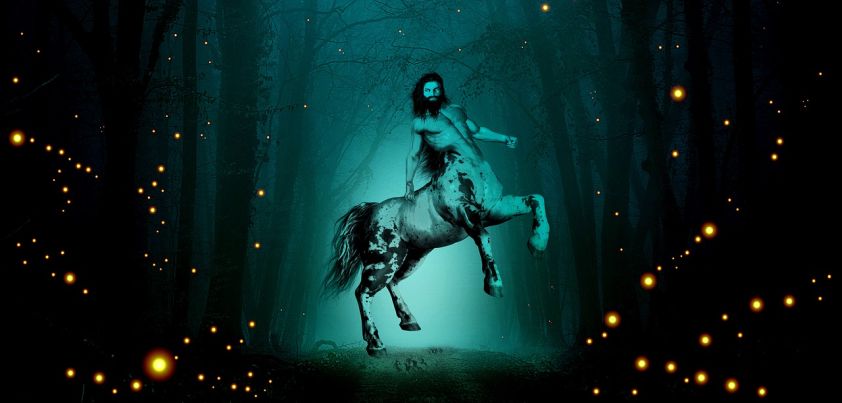 A major theme of this story by José Saramago is fear of those who are fundamentally “different”. Other themes include duality, modernity, wilderness encroachment, loneliness, isolation and identity. A mythical Centaur survives into the 20th century. The only one of its kind still living, it has wandered the wilderness for thousands of years. Unfortunately, humanity is expanding and it has become increasingly difficult to avoid contact. A fascinating feature of the story is the interdependence between the centaur’s horse and human sides. Both have different needs, which often require compromise. There are some human needs, however, that can’t be met. More…
A major theme of this story by José Saramago is fear of those who are fundamentally “different”. Other themes include duality, modernity, wilderness encroachment, loneliness, isolation and identity. A mythical Centaur survives into the 20th century. The only one of its kind still living, it has wandered the wilderness for thousands of years. Unfortunately, humanity is expanding and it has become increasingly difficult to avoid contact. A fascinating feature of the story is the interdependence between the centaur’s horse and human sides. Both have different needs, which often require compromise. There are some human needs, however, that can’t be met. More…
The Kugelmass Episode
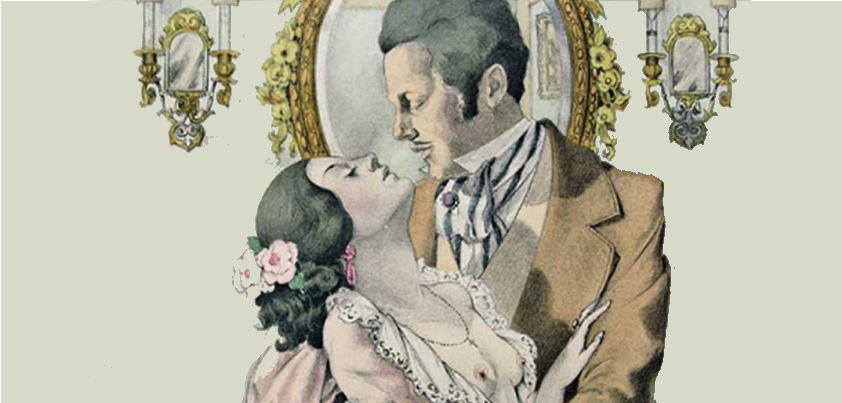 This Woody Allen story includes elements of fantasy, science fiction and farce. Kugelmass, bored with his “oafish” wife, wants a lustful extra-marital affair with no commitments either way. His wish seemingly comes true when a failed magician offers him a chance to seduce any woman from world literature. His first choice begins well, but ends badly; his second proves disastrous. The story is a cutting satire of America’s 1970s ‘Me’ culture. Themes include psychological well-being, marital relationships and casual sex. Ironically, instead of “having” the affair he wanted, Kugelmass spends the rest of eternity running from hairy, long-legged Spanish “haves”. More…
This Woody Allen story includes elements of fantasy, science fiction and farce. Kugelmass, bored with his “oafish” wife, wants a lustful extra-marital affair with no commitments either way. His wish seemingly comes true when a failed magician offers him a chance to seduce any woman from world literature. His first choice begins well, but ends badly; his second proves disastrous. The story is a cutting satire of America’s 1970s ‘Me’ culture. Themes include psychological well-being, marital relationships and casual sex. Ironically, instead of “having” the affair he wanted, Kugelmass spends the rest of eternity running from hairy, long-legged Spanish “haves”. More…
Chivalry
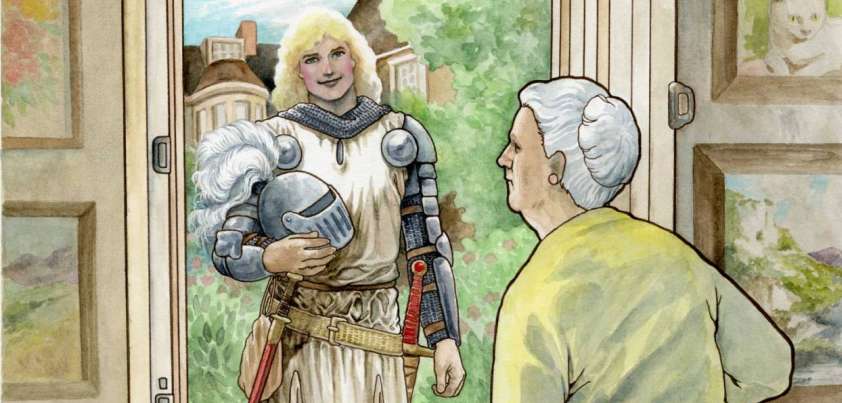 This Neil Gaiman fantasy features a nice old lady with nice friends, who lives in a nice house in a nice neighborhood. She was also living a nice, peaceful life until one day her routine was interrupted by Sir Galahad on a quest to find the Holy Grail. Having recently bought the Grail at an op-shop, the woman refuses Galahad’s offers of the Sword of Invincibility and Apple of (eternal) Life in exchange. Fortunately, the lad finds two other items she thinks would look better on the mantelpiece. Themes include civility and respect, patience, perseverance, and contentment in old age. More…
This Neil Gaiman fantasy features a nice old lady with nice friends, who lives in a nice house in a nice neighborhood. She was also living a nice, peaceful life until one day her routine was interrupted by Sir Galahad on a quest to find the Holy Grail. Having recently bought the Grail at an op-shop, the woman refuses Galahad’s offers of the Sword of Invincibility and Apple of (eternal) Life in exchange. Fortunately, the lad finds two other items she thinks would look better on the mantelpiece. Themes include civility and respect, patience, perseverance, and contentment in old age. More…
The Snow Child
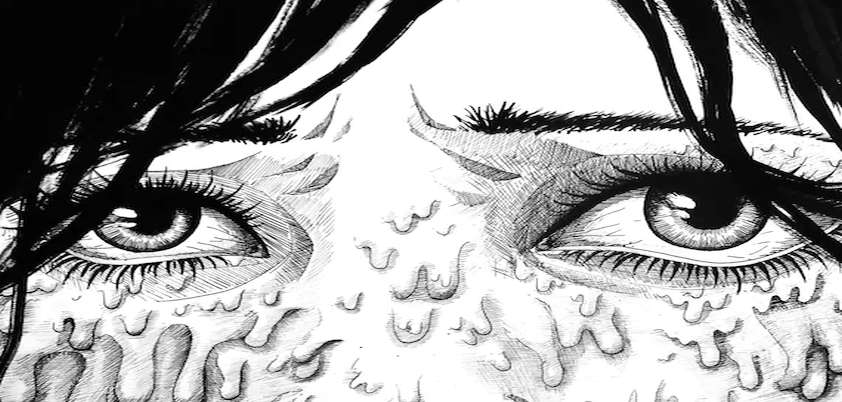 The main theme of Angela Carter’s Snow Child is feminist gender stereotyping. There are no heroes here. A powerful, dominating and lustful Count humiliates his wife by wishing for a young girl and clothing her in the vain Countess’s furs. His masculinity and dignity are then stripped away as he weeps while defiling the child’s dead body. The usually submissive Countess experiences a moment of power as the Count guiltily hands her the rose that killed the child. This passes when a thorn prick fails to kill her, proving that she lacks the sweet innocence of the snow child. More…
The main theme of Angela Carter’s Snow Child is feminist gender stereotyping. There are no heroes here. A powerful, dominating and lustful Count humiliates his wife by wishing for a young girl and clothing her in the vain Countess’s furs. His masculinity and dignity are then stripped away as he weeps while defiling the child’s dead body. The usually submissive Countess experiences a moment of power as the Count guiltily hands her the rose that killed the child. This passes when a thorn prick fails to kill her, proving that she lacks the sweet innocence of the snow child. More…
Snow, Glass, Apples
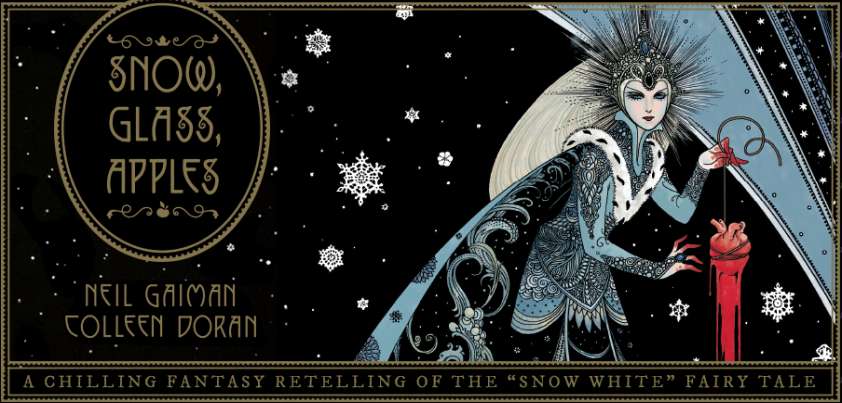 This Neil Gaiman story is yet another re-invention of the Snow White tale. However, a shift in point-of-view from a third-person omniscient narrator to the first-person perspective of the Queen allows the story to be re-imagined in a way we are unlikely to see from Disney. The much-maligned Queen knows a little magic (enough to glimpse the future and enchant the King), but not enough to match her evil stepdaughter. In the end, the Queen’s fate adds a new meaning to the slang term to feel cooked. Themes include power, vampirism, murder, revenge, jealousy, cruelty, sexual depravity (necrophilia, pedophilia, incest). More…
This Neil Gaiman story is yet another re-invention of the Snow White tale. However, a shift in point-of-view from a third-person omniscient narrator to the first-person perspective of the Queen allows the story to be re-imagined in a way we are unlikely to see from Disney. The much-maligned Queen knows a little magic (enough to glimpse the future and enchant the King), but not enough to match her evil stepdaughter. In the end, the Queen’s fate adds a new meaning to the slang term to feel cooked. Themes include power, vampirism, murder, revenge, jealousy, cruelty, sexual depravity (necrophilia, pedophilia, incest). More…
The Magic Shop
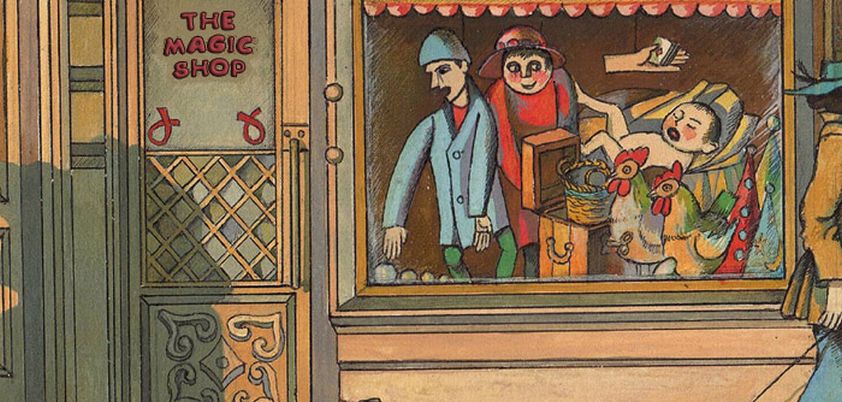 This delightful fantasy from H. G. Wells is about ‘magic’ and perception. A father and son enter a strange Magic Shop. As they begin to look around, the shopkeeper appears and entertains them with some ‘magic’. The innocent boy watches in awe, while his skeptical father looks for the sources of trickery. The pair moves further into the store and witness additional, seemingly impossible wonders. The father, realizing that what he sees may be real, becomes increasingly uncomfortable and begins to suspect the presence of unnatural forces. Themes: childhood innocence and wonder, father-son relationships, trickery vs. the supernatural. More…
This delightful fantasy from H. G. Wells is about ‘magic’ and perception. A father and son enter a strange Magic Shop. As they begin to look around, the shopkeeper appears and entertains them with some ‘magic’. The innocent boy watches in awe, while his skeptical father looks for the sources of trickery. The pair moves further into the store and witness additional, seemingly impossible wonders. The father, realizing that what he sees may be real, becomes increasingly uncomfortable and begins to suspect the presence of unnatural forces. Themes: childhood innocence and wonder, father-son relationships, trickery vs. the supernatural. More…
The Chaser
 On the surface, John Collier’s The Chaser is a light-hearted story about a young man looking to buy a love potion to enchant the woman of his dreams. However, in the old man’s final words Au revoir (goodbye until we meet again), we realize that the story may be the rising action in a longer plot. A major theme is manipulation. Alan is being as cruelly manipulated as he hopes to manipulate Diana. Other themes: true love vs. obsessive desire, equality vs. servility in relationships, morality (lack of respect for and destruction of Diana’s identity, murder as a solution). More…
On the surface, John Collier’s The Chaser is a light-hearted story about a young man looking to buy a love potion to enchant the woman of his dreams. However, in the old man’s final words Au revoir (goodbye until we meet again), we realize that the story may be the rising action in a longer plot. A major theme is manipulation. Alan is being as cruelly manipulated as he hopes to manipulate Diana. Other themes: true love vs. obsessive desire, equality vs. servility in relationships, morality (lack of respect for and destruction of Diana’s identity, murder as a solution). More…
Bears Discover Fire
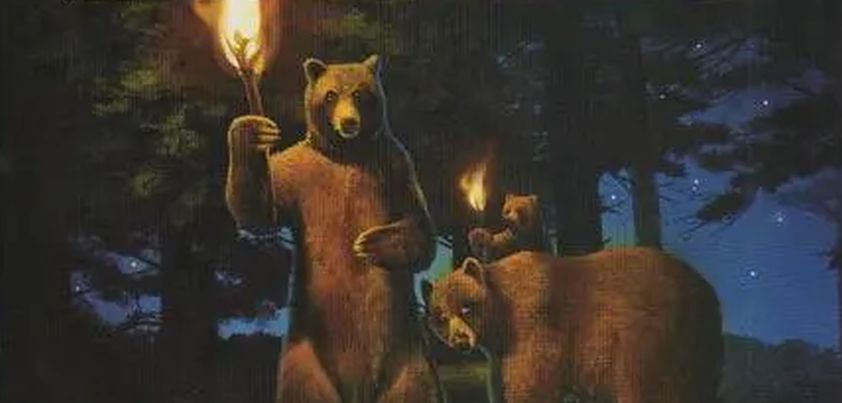 This story from Terry Bisson includes several important themes. Although bears may be thousands of years behind man in discovering fire, they are portrayed as being well ahead of us in terms of consideration, compassion, sharing and inclusiveness. The major theme is the effect of our modern lifestyle on families. Sixty-one-year-old Bobby does his best for his dying mother who, with only the TV for company at her nursing home, has given up on life. His brother is too busy “ministering” and selling real-estate to make time for her, or even pay attention to the needs of his growing son. More…
This story from Terry Bisson includes several important themes. Although bears may be thousands of years behind man in discovering fire, they are portrayed as being well ahead of us in terms of consideration, compassion, sharing and inclusiveness. The major theme is the effect of our modern lifestyle on families. Sixty-one-year-old Bobby does his best for his dying mother who, with only the TV for company at her nursing home, has given up on life. His brother is too busy “ministering” and selling real-estate to make time for her, or even pay attention to the needs of his growing son. More…
By the Waters of Babylon
 Although published well before the atomic age, this story from Stephen Benét provides a remarkable description of a post-apocalyptic world devastated by weapons of mass destruction. Survivors lead a primitive existence. Modern religious beliefs have been replaced by reverence for the “gods” who built (and whose spirits still live in) destroyed buildings. Pointedly, elitism, prejudice and warfare still exist. Priests maintain their status by keeping healing and other knowledge to themselves, and there is constant fighting between the protagonist’s Hill People and the supposedly “ignorant” Forest People. Themes: superstition, destiny, search for knowledge, class, prejudice, warfare, danger of modern weaponry. More…
Although published well before the atomic age, this story from Stephen Benét provides a remarkable description of a post-apocalyptic world devastated by weapons of mass destruction. Survivors lead a primitive existence. Modern religious beliefs have been replaced by reverence for the “gods” who built (and whose spirits still live in) destroyed buildings. Pointedly, elitism, prejudice and warfare still exist. Priests maintain their status by keeping healing and other knowledge to themselves, and there is constant fighting between the protagonist’s Hill People and the supposedly “ignorant” Forest People. Themes: superstition, destiny, search for knowledge, class, prejudice, warfare, danger of modern weaponry. More…
The Werewolf
 This is the first of Angela Carter’s well-known “wolf tales” series. Although the beginning resembles the Red Riding Hood children’s story, things soon take a very different turn. A wolf loses a paw, grandma is missing a hand, and the villagers show their bravery by beating the poor woman to death. What I particularly like is the way that Carter uses foreshadowing and omissions in the story-line to leave readers with a question: Was the grandmother really a witch/were-woman, or was the “good child” one of those northern country people with a cold heart mentioned in the opening sentence? More…
This is the first of Angela Carter’s well-known “wolf tales” series. Although the beginning resembles the Red Riding Hood children’s story, things soon take a very different turn. A wolf loses a paw, grandma is missing a hand, and the villagers show their bravery by beating the poor woman to death. What I particularly like is the way that Carter uses foreshadowing and omissions in the story-line to leave readers with a question: Was the grandmother really a witch/were-woman, or was the “good child” one of those northern country people with a cold heart mentioned in the opening sentence? More…
The Last Unicorns
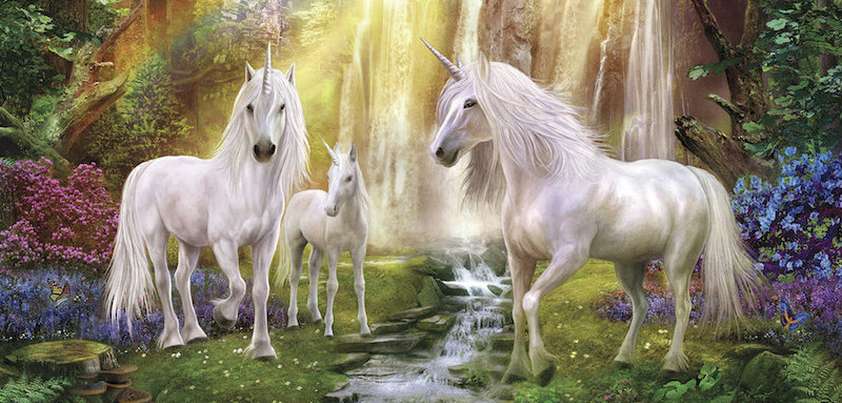 This flash story by Edward Hoch begins with the startling news that thousands of years ago unicorns once roamed Africa. A clever trader manages to buy a pair and transport them to the Middle East. As unicorns are much stronger than horses, he plans to make his fortune by breeding them and selling the young. Before he can do this, a stranger arrives and offers to buy his unicorns. When he says “No”, the stranger tries to steal them. The angry trader drives the stranger away, little knowing that his unicorns will soon become the last two in the world. More…
This flash story by Edward Hoch begins with the startling news that thousands of years ago unicorns once roamed Africa. A clever trader manages to buy a pair and transport them to the Middle East. As unicorns are much stronger than horses, he plans to make his fortune by breeding them and selling the young. Before he can do this, a stranger arrives and offers to buy his unicorns. When he says “No”, the stranger tries to steal them. The angry trader drives the stranger away, little knowing that his unicorns will soon become the last two in the world. More…
Fatso
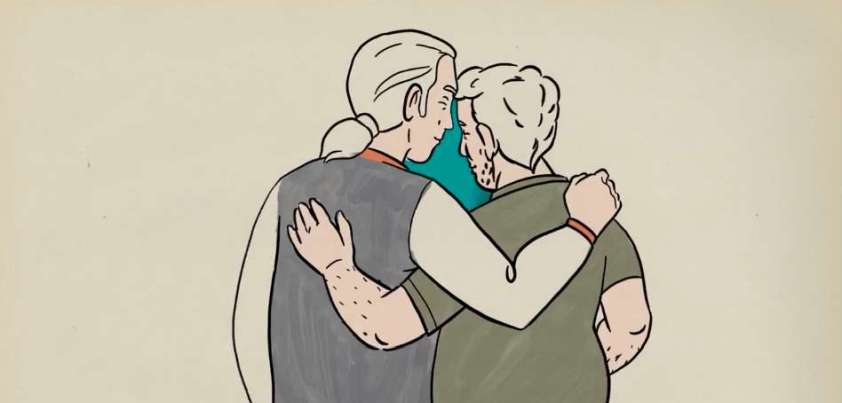 The concept of shapeshifting is not new. Examples exist in mythology, fairy-tales, and innumerable science fiction plots. The protagonist in this Etgar Keret story falls in love with a woman who is beautiful by day but, in a twist on Princess Fiona of Shrek fame, turns into a fat, hairy man by night. The man and womanly side remain lovers and even contemplate a family (ugh!), while he and the fat man become good friends. As absurd as the story might seem, it contains an important message about the role of friends in ensuring a complete and fulfilling life. More…
The concept of shapeshifting is not new. Examples exist in mythology, fairy-tales, and innumerable science fiction plots. The protagonist in this Etgar Keret story falls in love with a woman who is beautiful by day but, in a twist on Princess Fiona of Shrek fame, turns into a fat, hairy man by night. The man and womanly side remain lovers and even contemplate a family (ugh!), while he and the fat man become good friends. As absurd as the story might seem, it contains an important message about the role of friends in ensuring a complete and fulfilling life. More…
A Very Old Man With Enormous Wings
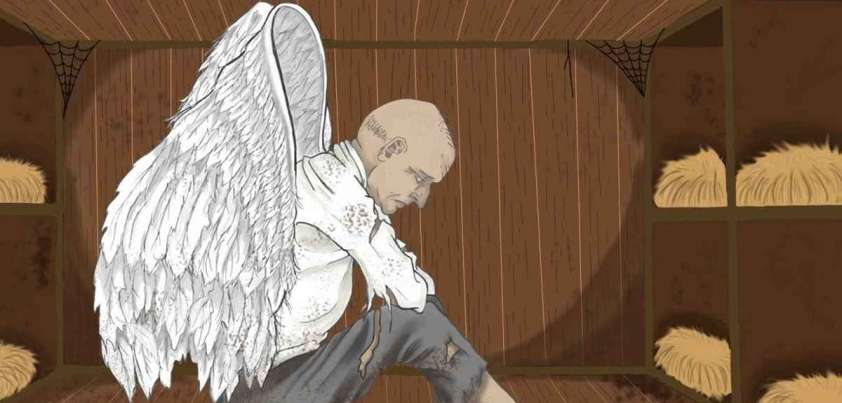 The major themes of this story by Gabriel García Márquez are doubt, cruelty and greed, and common reactions to those who appear strange or “different”. The treatment of the out of sorts angel and “spider girl” evoke genuine pathos and carry allusions to how some countries lock up refugees in miserable conditions and the likes of Joseph Merrick (the deformed gentleman paraded around 19th century England as The Elephant Man). The only uplifting moment comes when the innocent child climbs through a hole in the old man’s cage to play with him. Other themes include suffering, religion and the supernatural. More…
The major themes of this story by Gabriel García Márquez are doubt, cruelty and greed, and common reactions to those who appear strange or “different”. The treatment of the out of sorts angel and “spider girl” evoke genuine pathos and carry allusions to how some countries lock up refugees in miserable conditions and the likes of Joseph Merrick (the deformed gentleman paraded around 19th century England as The Elephant Man). The only uplifting moment comes when the innocent child climbs through a hole in the old man’s cage to play with him. Other themes include suffering, religion and the supernatural. More…
Adam and Eve and Pinch Me
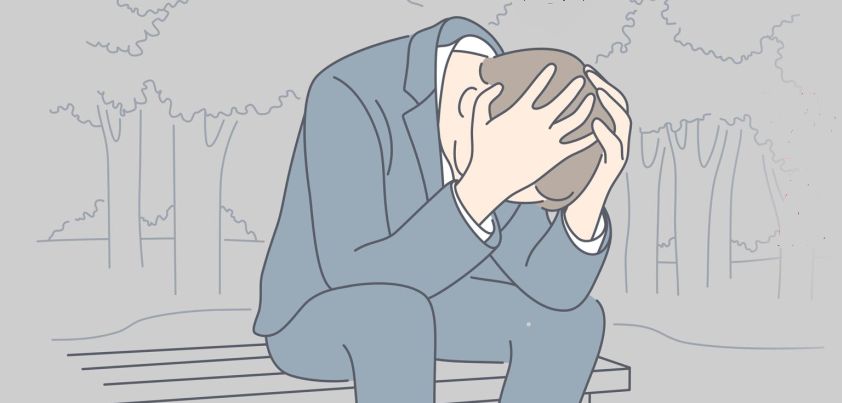 In one of A. E. Coppard’s more enigmatic stories, a confused man finds himself unable to open the doors in his house or communicate with his three children or servants. The inference is that he is dead and doesn’t know it. Relief comes when he awakens from a daydream with his wife beside him. However, he has a different identity and the third child featured in the dream, who had special powers, has not yet been born. Themes include the convergence of reality and fantasy, death, family, frustration, anger, precognition, identity. More…
In one of A. E. Coppard’s more enigmatic stories, a confused man finds himself unable to open the doors in his house or communicate with his three children or servants. The inference is that he is dead and doesn’t know it. Relief comes when he awakens from a daydream with his wife beside him. However, he has a different identity and the third child featured in the dream, who had special powers, has not yet been born. Themes include the convergence of reality and fantasy, death, family, frustration, anger, precognition, identity. More…
Metamorphosis
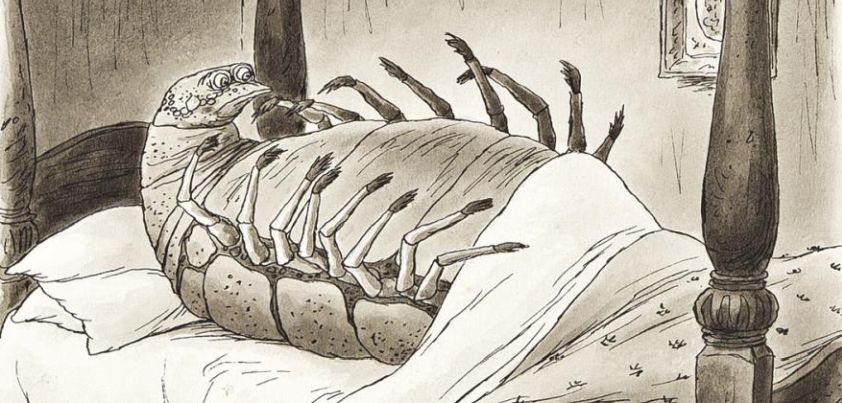 In this enigmatic story from Franz Kafka, a man who works hard as a traveling salesman to support his parents and younger sister wakes up one morning having metamorphosed into a giant bug. The father brutally confines the man/bug to his room, and for a period he/it is treated with consideration and compassion by the mother and daughter. However, as the family struggles to deal with their new financial situation, he/it gets less and less attention and ultimately suffers a rather cruel end. Themes include family, identity, self-sacrifice, alienation, transformation, isolation, betrayal, and the absurdity of life. More…
In this enigmatic story from Franz Kafka, a man who works hard as a traveling salesman to support his parents and younger sister wakes up one morning having metamorphosed into a giant bug. The father brutally confines the man/bug to his room, and for a period he/it is treated with consideration and compassion by the mother and daughter. However, as the family struggles to deal with their new financial situation, he/it gets less and less attention and ultimately suffers a rather cruel end. Themes include family, identity, self-sacrifice, alienation, transformation, isolation, betrayal, and the absurdity of life. More…
The Company of Wolves
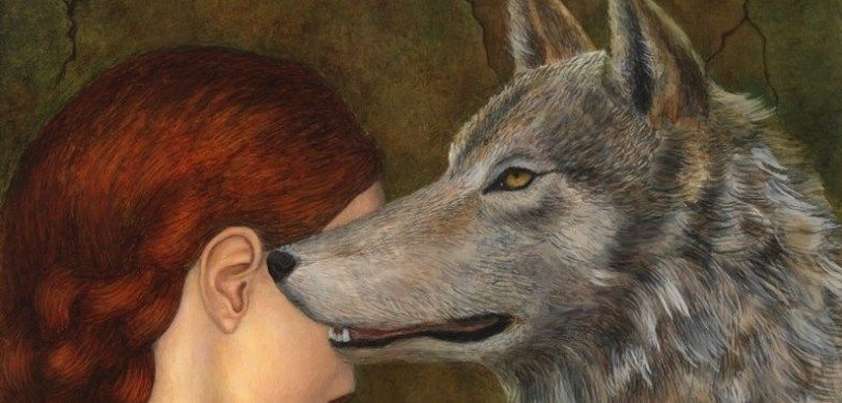 The early part of Angela Carter’s Company of Wolves comprises background and several anecdotes which build anticipation and atmosphere. The main story, which doesn’t start until one-third of the way through the text, is an adult-oriented adaption of Charles Perrault’s Little Red Riding Hood. Carter reinforces Perrault’s original theme through eroticism. The addition of the wolf choir outside the cabin (“Who has come to sing us carols, she said.” “Those are the voices of my brothers, darling; I love the company of wolves.”) reflects the feminist view (and Carter’s?) that all men have an innate desire to deflower young women. More…
The early part of Angela Carter’s Company of Wolves comprises background and several anecdotes which build anticipation and atmosphere. The main story, which doesn’t start until one-third of the way through the text, is an adult-oriented adaption of Charles Perrault’s Little Red Riding Hood. Carter reinforces Perrault’s original theme through eroticism. The addition of the wolf choir outside the cabin (“Who has come to sing us carols, she said.” “Those are the voices of my brothers, darling; I love the company of wolves.”) reflects the feminist view (and Carter’s?) that all men have an innate desire to deflower young women. More…
The Secret Life of Walter Mitty
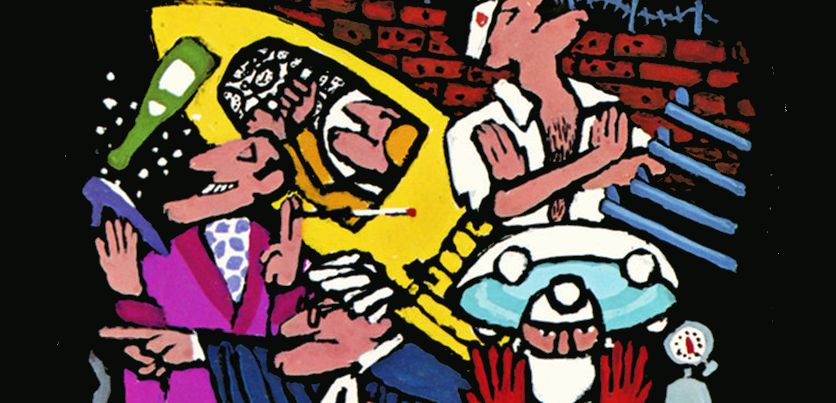 A major theme of this story by James Thurber is escapism (in this case taking charge of one’s life through fantasy). Walter Mitty, a meek, blundering man who leads a mundane suburban life is perhaps the world’s best-known daydreamer. Constantly humiliated by his dominating, nagging wife and others he encounters in the community, his way of compensating is to escape into exciting, imaginary worlds. There, he acts out fantasies in which he is the opposite of his real self, performing wondrous feats and bravely facing all kinds of danger. Other themes: identity, self-respect, masculinity, gender roles. More…
A major theme of this story by James Thurber is escapism (in this case taking charge of one’s life through fantasy). Walter Mitty, a meek, blundering man who leads a mundane suburban life is perhaps the world’s best-known daydreamer. Constantly humiliated by his dominating, nagging wife and others he encounters in the community, his way of compensating is to escape into exciting, imaginary worlds. There, he acts out fantasies in which he is the opposite of his real self, performing wondrous feats and bravely facing all kinds of danger. Other themes: identity, self-respect, masculinity, gender roles. More…
The Man Who Could Work Miracles (A Pantoum in Prose)
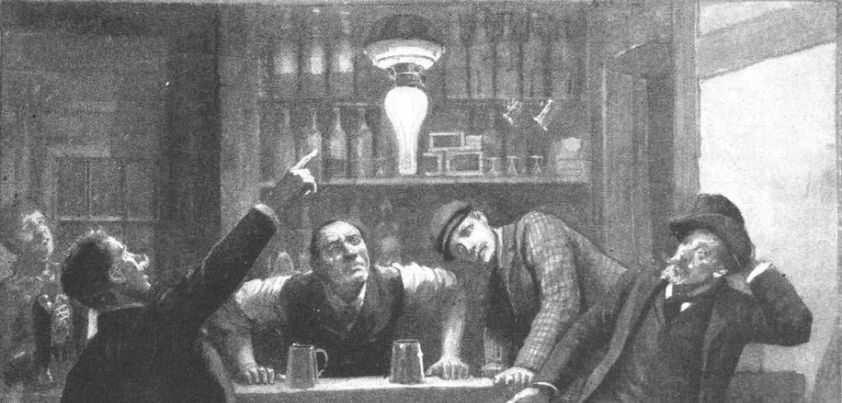 In this light-hearted story by H. G. Wells, a man known as a sceptic as far as miracles are concerned suddenly discovers he can make things happen just by thinking about them. After a few teething problems, such as sending a local police constable to Hades, he confides in his parish priest. Once convinced, the priest becomes so obsessed with using the miracle worker’s powers for good that he inadvertently encourages him to do something that brings about global catastrophe. Themes include the supernatural, power and responsibility, human frailty, the danger of interfering with nature, science vs. religion. More…
In this light-hearted story by H. G. Wells, a man known as a sceptic as far as miracles are concerned suddenly discovers he can make things happen just by thinking about them. After a few teething problems, such as sending a local police constable to Hades, he confides in his parish priest. Once convinced, the priest becomes so obsessed with using the miracle worker’s powers for good that he inadvertently encourages him to do something that brings about global catastrophe. Themes include the supernatural, power and responsibility, human frailty, the danger of interfering with nature, science vs. religion. More…